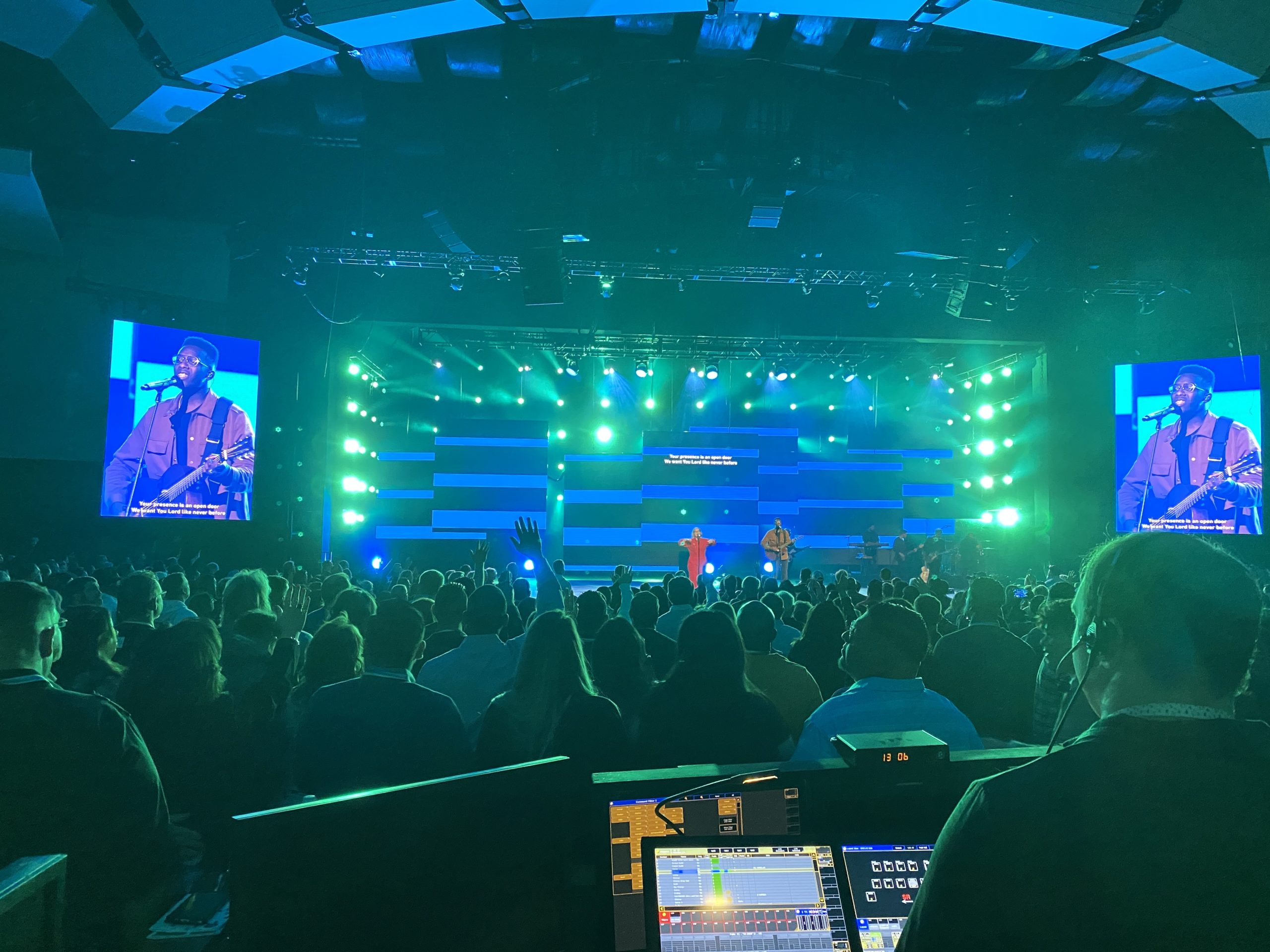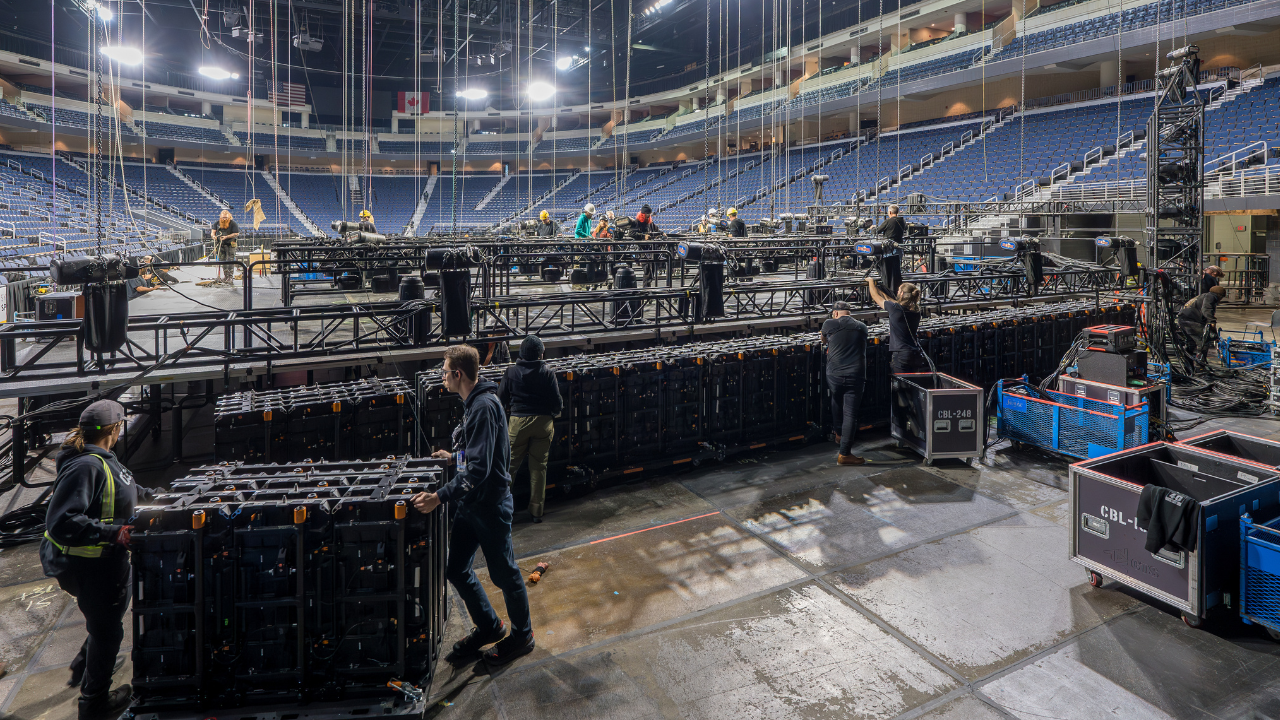Project Managers: How To Get (and Stay) 3 Events Ahead
Published on: Thursday, December 30, 2021 - 9:14am

Sure, it’s possible to wait until the last minute to pull off an event. But getting all the proper decision-makers in the same place is one of the hardest things to do in our industry.
And waiting until the last minute causes undue stress for all teams involved, increases the risk of failure, and can include severe cost ramifications as well.
The live event industry is booming today, even as some aspects of purchasing and inventory have become challenging. Right now, it’s more important than ever to plan events far enough in advance to ensure their success.
Recently at CTS, we’ve had good experiences working with clients to look at least three events into the future, and we think you can too.
What Does Last-Minute Look Like?
Let’s start with a look at why last-minute events aren’t a sustainable option anymore. What are the problems that come up, and how do they affect different aspects of event execution?
Equipment Availability
Manufacturers aren’t stocking their shelves with inventory quite like they used to, and ordering takes time — especially with the much-publicized delays we’re seeing with imports.
AVL companies run on “Just in Time” purchasing, meaning we don’t warehouse loads of equipment just in case it’s needed in the future. We buy what we know we’ll need based on the upcoming event schedule.
It’s a dangerous game to order gear a week, or even a month, out from an event. Items can be out of stock (not an improbable scenario in light of today’s shortages), or they can be impossible to ship by the deadline.
In either situation, you’re left scrambling to find a solution.
Exponential Costs
Last-minute will destroy your budget.
Before the pandemic, you could source most technicians and equipment whenever you needed them. But the supply chain has suffered, and the freelance labor pool has changed dramatically.
As mentioned above, equipment isn’t as available as in the past. But if it is available to source at the last minute, it’s going to cost you — a lot — in time, effort and of course your wallet.
Companies that used to specialize in equipment-only rentals have shifted to a service-based industry. The companies we used to all rent from have become the competition.
On the labor side, many of our first calls found other work during 2020 and decided not to come back. This has caused a layer of talented crew to simply vanish. It takes time to find the people with the skills, matched values, and availability you need. Working in Nashville, you’re always fighting to find event vs. tour team members. So getting ahead of your needs is paramount in getting the best possible team.
Crew Stress
Last-minute planning also greatly contributes to crew stress.
The crew is a representation of who you chose to hire for an event. Without sufficient lead time, they’re often running on last-minute information or are asked to fulfill responsibilities they weren’t aware of before.
When this happens, crews aren’t able to provide the highest quality event experience for the client. Like we’ve talked about before, our team on the road gets to spend more time with our clients directly. Bringing them in last minute with missing information is not setting them up to represent us in the best way.
Event Quality
This probably seems obvious, but last-minute planning correlates strongly with lower event quality. Without the time to plan walk throughs, run soundchecks, test equipment, etc., your event will inevitably encounter some hiccups.
For example, what happens if a client hands the crew a video at walk-in and asks them to play it? They’ve never seen the video before, and they don’t have time to watch it, test playback, or incorporate the new feature smoothly into the process or the schedule. Issues are inevitable, and without the way to address them ahead of time, the event quality suffers.
Reputation
Finally, last-minute event planning can also affect your reputation as a project manager.
When event quality suffers or necessary equipment is missing, it affects your reputation with the client. They may leave the relationship dissatisfied and hesitate to work together again.
When crews or freelancers are unhappy with their experience on an event, your reputation suffers with them as well. They may be reluctant to work with you in the future, or they may charge you twice the usual rate.
What Stops Us From Planning Ahead?
During the pandemic, everyone flew by the seat of their pants. The ever-changing needs of clients and ever-fluctuating regulations around venues meant that no one could plan very far in advance. AVL partners proved we could pull off events with virtually no lead time, and clients and audiences alike were generous to overlook imperfections.
Today, though, we’re mostly back to business as usual. Clients and audiences expect excellent event experiences. The problem is that the last-minute habits of the pandemic have carried over.
Clients aren’t always looking past the next show, or even planning adequately for the one coming up. They might be nervous that something will derail their event, so they want to wait to invest in planning. Or they might be forgetting to communicate adequately with their project managers.
How To Go From Last-Minute to 3 Events Ahead
To address last-minute planning and get out in front of your clients’ schedules, here are a handful of strategies to employ.
Have Open Conversations
Last year was hard on everyone. When you acknowledge that in your conversations, you can gain a lot of ground with clients. As their project manager, look for ways to have frequent honest and open conversations with them. Try to get in front of them enough to recognize and predict their needs.
Also be sure to ask clients what’s coming down the pike. When you let them know the importance of adequate time for planning, you foster proactive versus reactive thinking. They may not know exact dates for events, but if they can give you a rough estimate, you’ll be able to start preparing.
Establish a Timeline
When you get an event on the calendar, work out a timeline for all the logistics, hiring, and other tasks you’ll have to accomplish leading up to it. Try to stick to it as best you can.
Pick a Production Partner as Early as Possible
The sooner you choose a company, the sooner they can start planning for your client’s event. By reaching out to them early, you’re also guaranteeing you won’t miss out on a solid partner who’s unavailable at the last minute.
Get Ahead on Staffing
Start looking early for all the freelancers, staff, and crew you might need to hire. If you give yourself the time, you can find the best people for the job at the most reasonable price.
Get the Production Packet Out as Soon as Possible
The production packet doesn’t have to be 100% perfect to be useful to your AVL partner. If you can bring it into the 50% to 75% complete range and get it out early, you set your production partner up for success. They can begin to test their equipment ahead of time, for example, and order any additional pieces they’ll need.
Be OK With Saying No
Saying No to last-minute event requests protects two things. It protects your VIP clients from having your valuable time and attention taken away from their projects. And it protects you, your staff, and your sanity from the excessive strain of a new last-minute client.
This decision may not always rest with you. If not, look for opportunities to have conversations with decision-makers on the benefits of saying no at the right times.
Conclusion
After a season of instability, an honest, proactive, realistic plan gives you the agility to lock in the predictable, and respond to the unpredictable. As a project manager, you can help your clients shed the poor planning habits they developed during the pandemic and develop better habits that lead to successful events.
By working with your clients to get out in front of their schedules, you’ll be able to run smooth events, stay in budget, and avoid all the problematic hallmarks of last-minute planning. This time, and every time.



